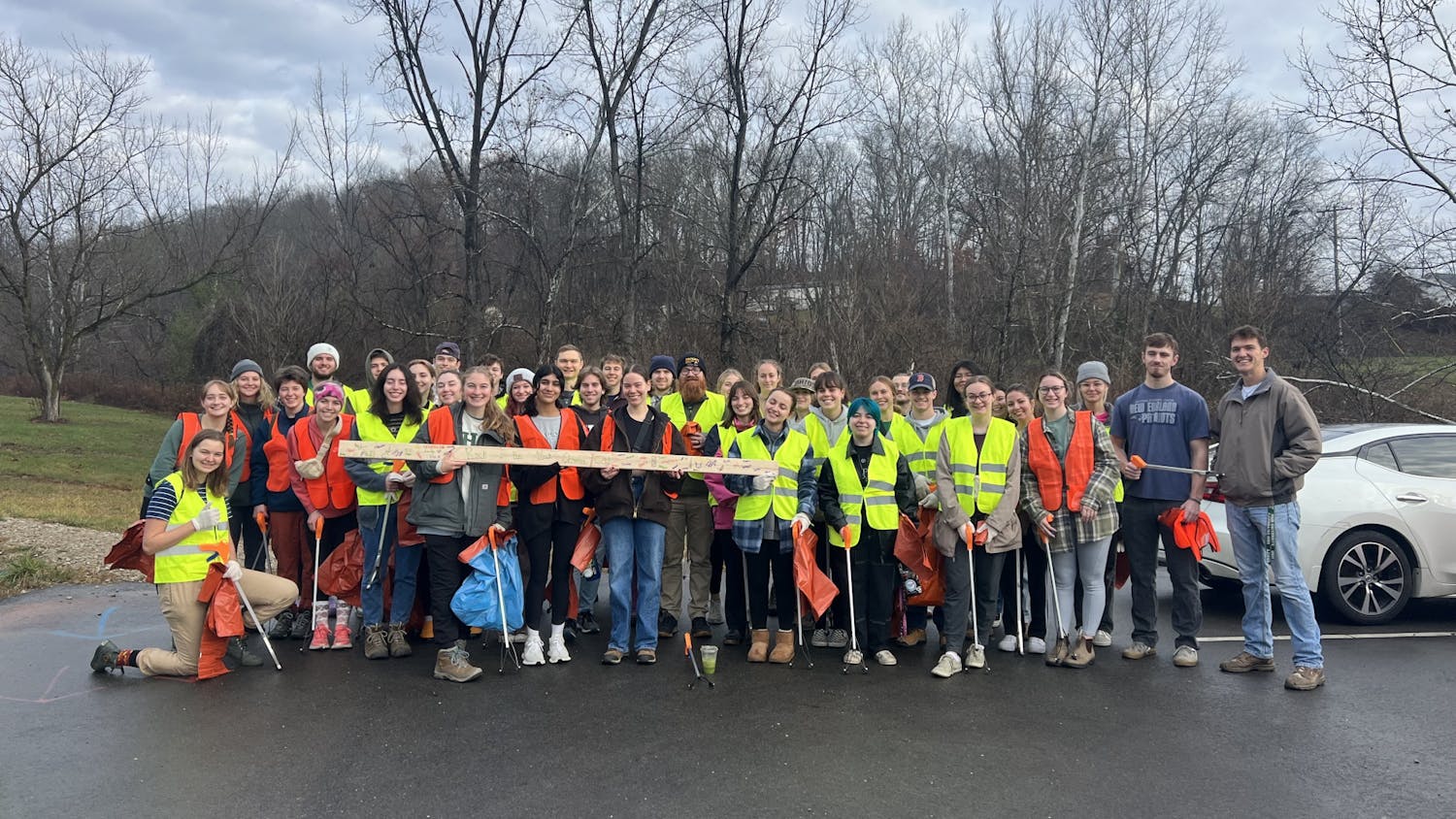Students and employers get a reality check for how the workforce and society will function in the year 2020.
Valerie Terrell grew up with parents who got married at ages 24 and 29. Her mother, who works at UPS, and father, who recently retired from Time Warner Cable, stayed at those same jobs for a combined 60 years.
With Terrell graduating in the spring with a bachelor’s in communication studies, she said she never pictured herself working at the same place for an extended period of time or marrying at the age of 24 like her mom.
“People think being done with college means you have to settle down and grow old right away,” she said. “In my generation, couples cohabit and may never marry. I believe more women are looking to be established and are even pursuing a second degree before marriage.”
Terrell said her parents never even had to compile a resume or worry about gaining a large amount of experience from different places as a career move.
Terrell dubbed the millennial generation “the job hoppers” who go against the grain of what generations laid out before them.
The evolution of work
By 2020, 50 percent of the workforce will be millennials, according to PwC, a services network. With such a large number, Adam Rapp shows how managers can bridge the generational gap so millennials are not the ones always having to conform to a company.
Rapp, a professor of sales in the College of Business, looked at some ways that employers could make businesses more successful with a survey he conducted in 2012 of 10,000 millennials and about 2,500 managers who work with millennials.
“Every generation complains about the next generation. … The reason that happens is because (millennials) grow so large that I need to adapt and adopt to your style,” Rapp said. “The next generation is typically more efficient and more effective. They have tools in place the previous generation didn’t have.”
With baby boomers not having as much technology growing up, Rapp said they can be engaged in conversation over a long period of time. Generation X grew up with cable TV and video games, which led to more interactive communication in the workplace.
“For millennials, their life is like Times Square,” Rapp said. “For them to sit in a classroom for an hour and 20 minutes and just listen is almost impossible. If I’m a manager of millennials, then I need to understand that my management practices need to change and evolve to this. If I’m droning on and on, you stop listening.”
Those changes in values cause businesses to interact with young workers in a different way that is not financially oriented. Rapp said money is still important for workers, but the research shows it is not as important as it once was.
“If you talk to Generation X about what’s the most important thing in a job, it’s money, commission, bonuses, compensation,” Rapp said. “The top four things based on the surveys that I’ve done (for millennials) are trust, friendship, ethics and teamwork.”
Danielle Woolf, a freshman studying physical therapy, said a good job combines a safe environment, a good boss and stability.
“Of course, the money is a big factor, but it’s not like the sole component,” she said. “It’s contributing to what I want and to not have to worry (financially).”
Rapp said historical events have caused millennials to value satisfaction and their quality of life and have changed how business is being done.
“Millennials have seen two major recessions. CEOs at Bank of America stole billions of dollars from people,” Rapp said. “You’re not interested in working for an unethical company. (Generation X) didn’t know about it, and we didn’t want to know about it.”
Terrell said she will work in Cleveland where she interned last summer, adding that the reputation of the company is what attracted her.
“It is most important for me to have job stability,” she said. “I know that I will earn good money and have this position for at least one year, so I am content.”
Thinking About Retirement at 22
At least 10,000 people a day turn 65, according to a 2010 study by Pew Research Center, and Alan McMillan, founder of LearnEarnRetire, said the baby-boom generation is “knocking on the door of retirement.”
“The employers shifted the burden of retirement onto the employee,” McMillan said. “Now, the state has burdened the finance of education onto the student. You can, should and must do better than the (baby-boom) generation. One of the ways is to learn from what the previous generation did.”
A 401(k) was created in the 1970s as a savings plan for workers to invest a percentage of their paycheck, tax-free until retirement. The new norm is for people to tap into their 401(k) for retirement because pensions are either gone or significantly depleted, McMillan said. By planning early, retirement can lead to a more comfortable life for when people “are worn out or unable to work.”
“In high school, I had to take this financial literacy class, but I know I didn’t care about it then because it didn’t affect me,” Taylor Ducker, a freshman studying communication studies disorders, said. “I haven’t even thought about how I’m going to deal with debt and a 401(k) after college.”
McMillan said millennials, those who are 18-25 years old, should start putting a percentage of their paycheck into their 401(k) at 22 for retirement.
The average student at Ohio University makes $43,000 after graduation, according to PayScale. If alumni put away a small percentage of that initial salary into their 401(k), McMillan said they will have an extra 20 years of compounding interest if they retire at 65.
“It’s the small amount out of your paycheck, even when you end up making more money,” he said. “It had more time to incubate and get bigger and bigger.”
Two generations ago, employees did not have to monitor what came out of their paychecks for retirement because the employers provided that service. McMillan said it’s time to start working for “your financial independence.”
Doing it Differently
Milestones, such as marriage, are also pushed back for millennials, of which only 26 percent are married. Between the ages of 18 and 32, 36 percent of Generation X was married and 48 percent of baby boomers were married, which is not surprising because of the financial stresses lower-level income couples experience, according to the Pew Research Center.
Terrell said she and her boyfriend plan on working for at least two or three years after college before even considering marriage.
“You find out your (significant other) has horrible credit. He’s way into debt, and he’s going to need you to help him pay his bills,” McMillan said. “Maybe you might not fall in love with him so quickly.”
Loran Marsan, a visiting assistant professor in the Women’s, Gender and Sexuality Studies Department, said there is still the expectation from older generations that millennials should marry, whether they make the decision not to get married or to have children by choice or because of financial circumstance.
“We have a script written out for us from when we’re born as men and women, and marriage is always on that list for everyone,” Marsan said. “(Millennials are) also the first generation to have debilitating debt for their educations. We owe so much debt that we’re afraid to do things we want to do because we feel like we have to pay off these ridiculous things.”
Rapp said millennials receive a lot of unfair criticism for their heavy use of technology, but he argued that the Internet is a tool that has always been available for millennials’ use.
“I grew up with phones, and it’s like criticizing us because we use the telephone,” Rapp said. “The telephone was always there. It was always part of my life, so, yes, I’m going to use it.”
Ducker said the stereotype for young people and technology is that they are always on their phones and are more “anti-social” than older generations. Rapp said that has a negative impact on social interaction among generations because the communication mediums force baby boomers and Generation X to change and adapt.
“You have had access to more technology than any other generation has,” he said. “That changes the way that you interact and your expectations and perceptions of how people should interact with you.”
Past events have turned millennials into skeptics, which McMillan said caused millennials to question how success works and to want to be convinced to buy into the labor, which is unlike any other generation.
“And if they buy into it, you have the most educated, technology-savvy, multi-tasking … generation the country has ever seen,” he said. “You guys have nailed it in some incredible ways. You’re doing it differently.”
@mmfernandez_
mf736213@ohio.du






